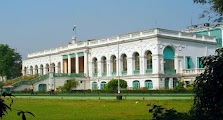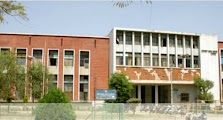Top 10 must-visit
biggest libraries of India

1.The National Library of India, Kolkata:
It is the largest library in the country by volume and India's
library of public record
It was established in the year 1836
It houses 26,41,615 books along with other periodicals, maps,
manuscripts etc
It is spread in an area of 30-acres
It was opened to public on February 1, 1953
2. Delhi Public Library:
 It
was started as a UNESCO project in the year 1951 by the Govt. of India
It
was started as a UNESCO project in the year 1951 by the Govt. of India
It is the busiest Public Library in South Asia
It has a collection of about 18 lakh books in Hindi, English,
Urdu, Punjabi & other Indian Languages- almost all subjects are represented
in its collection
The Library is also the 4th recipient library under the
provision of Delivery of Books & Newspaper (Public Libraries) Act 1954.
3. Saraswathi Mahal Library or Tanjore Maharaja Serfoji's Sarasvati
Mahal Library, Tamil Nadu
It
is housed within the campus of Thanjavur Palace and had started as a royal
library for the Nayak Kings of Thanjavur
It has a rare collection of palm leaf manuscript in various
regional languages of India
It came under the possession of the state of Tamil Nadu in the
year 1918
In the year 1998, the library installed computers to computerise
library activities
The library preserves all the manuscripts in the form of
microfilms
4. Anna Centenary Library, Chennai, Tamil Nadu

It was inaugurated on September 15, 2010
The total built up area of this centralised air-conditioned
library is 3.75 lakh sq. ft., which encompasses ground and eight floors
It has a collection of 5 lakh books
It also has a Braille section to cater to the needs of the blind
readers
It has a huge Conference Hall that can facilitate 150 members
5. Krishnadas Shama Central Library, Goa
It
was established on September 15, 1832 by Vice Roy Dom Manuel de Portugal e
Castro as 'Publica Livraria.'
The status of Library was raised to that of a National Library
on February 15, 1897
It has more than 1.8 lakh books in different languages
The total pre-liberation collection is over 40,000 volumes
6. Allahabad Public Library, Allahabad, Uttar Pradesh

It has a collection of about 1.25 lakh books on various subjects
It has rare Arabic manuscripts along with papers of Parliament
7. Smt. Hansa Mehta Library, Baroda, Gujarat
 It It is the University Library of M S University of Baroda
It It is the University Library of M S University of Baroda
It was established on May1, 1950
The total built up area of the Library is 80,025 sq. ft
It has a single largest Reading Room of 10,600 sq. ft. which can
accommodate about 1100 readers at a time
It has an impressive collection of rare books that include books
as old as those dated back to sixteenth century.
Approximately 3,500 books are preserved in this precious
collection, which comprises some noteworthy titles, which are out of Print.
8. Connemara Public Library, Chennai, Tamil Nadu
 It It was established in the year 1896
It It was established in the year 1896
It is one of the four National Depository Libraries, which
receive a copy of all books, newspapers and periodicals published in India
It serves as a depository library for the UN
9. State Central Library, Thiruvananthapuram, Kerala

It
was established in the year 1829 A.D
It has a total collection of 3,67,243 documents in different
languages such as English, Malayalam, Hindi, Tamil, Sanskrit in various
disciplines
The library subscribes to 27 dailies and 215 journals including
foreign journals
10. State Central Library, Hyderabad

It
has an impressive collection of 5,01,861 books
It also has a collection of about 17,000 rare and valuable
manuscripts dating back to 5th and 6th centuries
·
·



